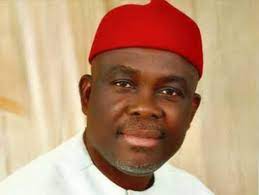The Independent Petroleum Marketers Association of Nigeria (IPMAN) says the Federal Government should begin the implementation of programmes and palliatives aimed at cushioning the effects of the eventual removal of petrol subsidy in the country.

IPMAN’s President, Mr Chinedu Okoronkwo, made the call in an interview in Lagos while reacting to the government’s decision to postpone the removal of petrol subsidy indefinitely.
Minister of Finance, Budget Hajia Zainab Ahmed, had early last week announced that the government would no longer go ahead with its earlier plans to remove subsidy on Premium Motor Spirit in July 2022.
Okoronkwo said: ” For us at IPMAN, we believe this postponement gives the government an opportunity to put the necessary programmes and palliatives in place.
“The government should ensure that we improve our domestic refining capacity by rehabilitating our refineries.
“This is ongoing and hopefully the contractors will adhere to the stipulated timelines.
”Also, government should give the necessary support to the Dangote Refinery and other private-owned refineries under construction to enable them come on stream as soon as possible.”
Okoronkwo advised the government to initiate its mass transit programme which would help reduce the cost of movement of goods and persons.
“One of the factors contributing to the high cost of food stuff in Nigeria is transportation. If we have mass transit buses, this will help us to reduce the prices of food stuff in our markets,” he said.
Okoronkwo disclosed that IPMAN was also working with the government for successful implementation of the autogas scheme.
He said this would give Nigerians an alternative to Premium Motor Spirit for fueling their vehicles as gas was more efficient and cheaper.
“We are working with the government to see how we can acquire conversion kits which are quite expensive and to co-locate Compressed Natural Gas (CNG) stations in our retail outlets across Nigeria,” the IPMAN president said.
Chief Timipre Sylva, Minister of Petroleum Resources, had on Monday in Abuja met with Oil Marketers on the Compressed Natural Gas (CNG)/Auto Gas Transition Programme.
The meeting was organised to discuss private sector’s engagements and structures to put in place before subsidy removal and strategies on how to deploy Natural Gas Vehicles (NGVs) within the shortest timeframe.
Auto Gas conversion was part of the structure and building block which government planned to put in place towards full deregulation for alternative means to avoid full weight of subsidy removal impact on citizens.
Sylva told the oil marketers that the midstream and downstream regulatory authorities already had infrastructure development fund targeted at developing the sector.
Read Also: Modular Refineries Suffer Delay On Funding Concerns
“So there will be some collaboration between you and the infrastructure fund to set things up for auto gas conversation. We will bring out the fund along with some countries Original Equipment Manufacturers (OEMs) to hook up and assess.
“The burden will not be on you now, that is why we are bringing you on board, already the funding is in place to enable this aspect of your business.
“Government is coming in, we will provide 50 per cent of the funding while the country OEMs will provide another 50 per cent for you to assess. The programme will start in March,” he said.
The Minister recalled that the agreement around Auto Gas policy a year ago was clear, that there must be a critical amount of vehicles converted and corresponding critical amount of dispensing stations in place for the system to kick-start.
“If not, we will have a situation where converted vehicles will not have a place to refuel or stations not having converted vehicles to fill.
“The conversion process has been going on and we have been talking to OEMs. To do this, we agreed that we needed to have one million vehicles converting in the first place,” he said.
According to him, the government has decided to get partnership of credible local marketers to participate with the OEMs to put their system in place in Nigeria by installing dispensing stations and convert the stations.
Kindly like us on Facebook
















Discussion about this post